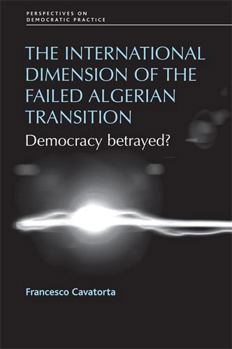The International Dimension of the Failed Algerian Transition: Democracy Betrayed?
The book builds an innovative theoretical framework, through which previously neglected international factors are brought into the analysis of transitions to democracy. The case of Algeria is then explored in great detail. This volume is an important contribution to the literature on democratization and provides an interesting analysis of Algerian politics during the last two decades. More specifically, the book examines how international variables influence the behaviour and activities of Algerian political actors. By bridging the comparative politics and international relations literatures, the book offers a new understanding of the initiation, development and outcome of transitions to democracy. International factors, far from being marginal and secondary, are treated as central explanatory variables. Such external factors were crucial in the Algerian failed transition to democracy, when the attitudes and actions of key international actors shaped the domestic game and its final outcome. In particular, the book explores the controversial role of the Islamic Salvation Front and how its part was perceived abroad. In addition the book argues that international factors significantly contribute to explaining the persistence of authoritarian rule in Algeria, to its integration into the global economy and its co-optation into the war on terror. This book will be useful for scholars and students of processes of democratisation, for Middle East and North Africa specialists and for general readers interested in the role of international actors across the Arab world.
Format:Hardcover
Language:English
ISBN:0719076161
ISBN13:9780719076169
Release Date:May 2009
Publisher:Manchester University Press
Length:208 Pages
Weight:0.90 lbs.
Dimensions:0.9" x 5.6" x 8.5"
Customer Reviews
0 rating





